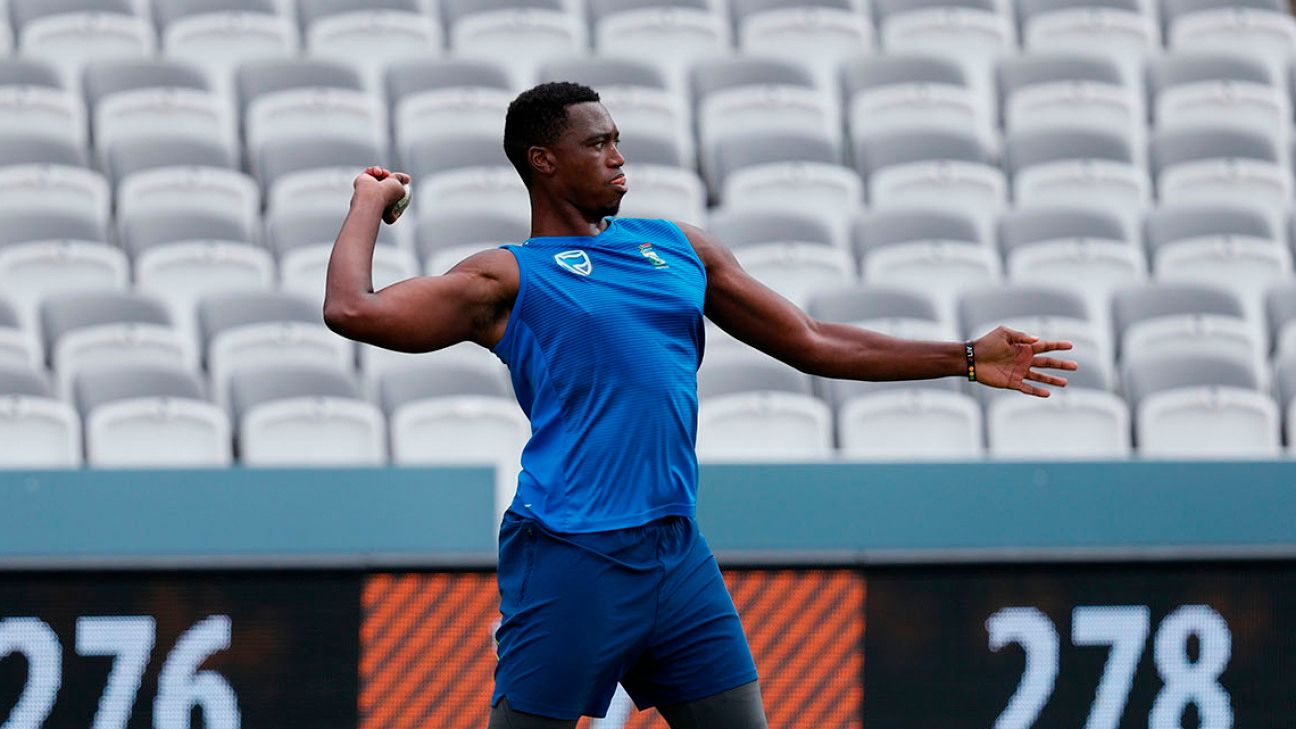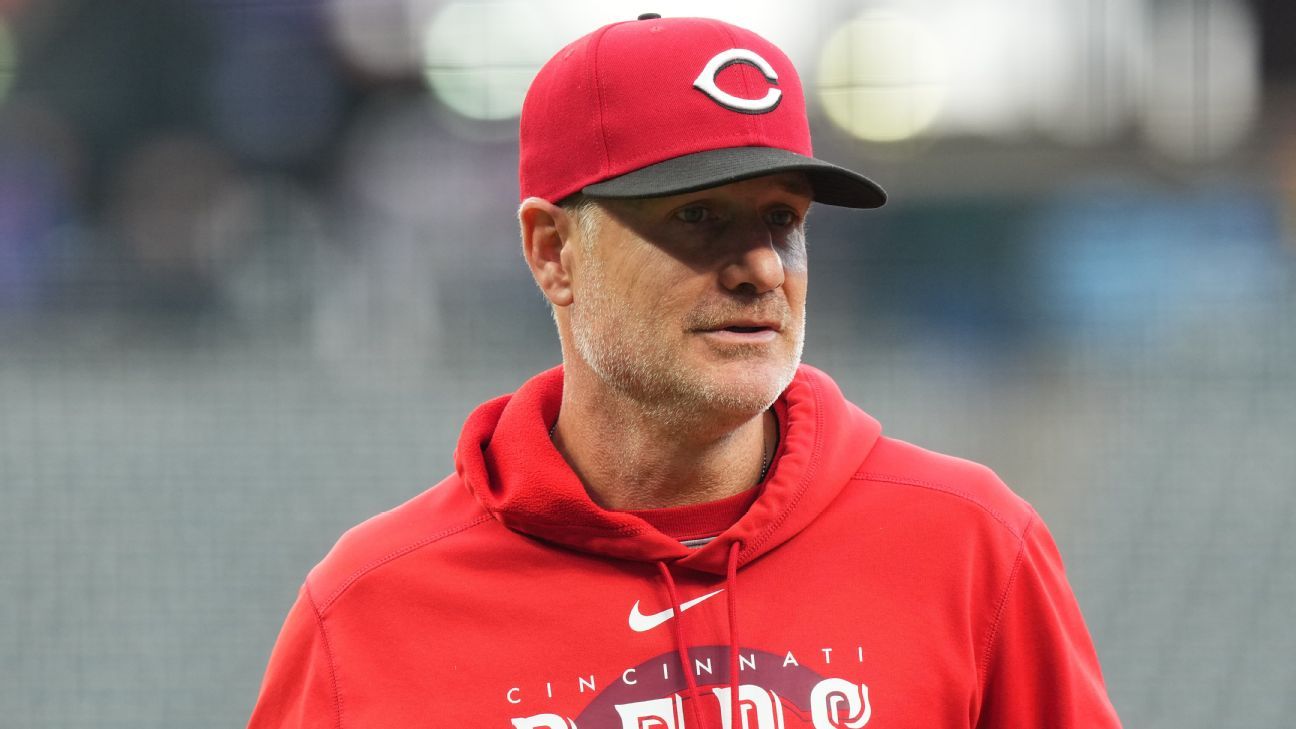
Lungi Ngidi has lost "probably four or five kilograms," and some of his youthful spark after spending three weeks at a CSA strength and conditioning camp, intended to give him and three others time to work on their fitness.
Ngidi was sent to the camp on the back of a hamstring injury, sustained in the first week of December in the Mzansi Super League, and has emerged from it lighter, leaner and ready for a leadership role in the upcoming ODI series against England.
In the absence of Kagiso Rabada, who is being rested, and Dale Steyn or Chris Morris, who were not considered for this series, Ngidi is the most experienced frontline seamer in the attack. Only allrounder Andile Phehlukwayo has more ODI caps, which means Ngidi will be tasked with spearheading the pack.
That reality combined with the lifestyle changes he has had to make in a bid to have an injury-free run may explain why Ngidi had his game-face, and not his usual grin, on ahead of his first training session with the national side on Sunday.
"To be leading the attack, doesn't feel any different. I've done it before," Ngidi, said, trying to play down the responsibility that lies ahead in the next week. "There is always expectation playing for the national side. I am pretty used to that."
What he is less used to is the rigorous routine he was put through at the High Performance Centre, which included everything from fitness to food.
"You speak to dieticians, work with strength and conditioning coaches and try find the best way to lose weight and to maintain strength and fitness," Ngidi said. "There is a lot that goes into it behind the scenes. You've got to limit a lot more things that are harmful to your body."
The guidance on how to live like an elite athlete was provided by Adrian le Roux, a sports scientist who has worked with the Indian, South African and Kolkata Knight Riders teams, and who was put in charge of the recently completed camp. In attendance was Ngidi, Tabraiz Shamsi, Jon-Jon Smuts and Sisanda Magala.
Consider those names and their frames (and the fact that Smuts was withdrawn from the T20 tour of India and Magala is unavailable to play in this England ODI series because both failed to pass fitness tests) and you will understand the company Ngidi was considered part of.
While not necessarily overweight, the frequency of Ngidi's injuries was cause for concern. Since his international debut in 2017, Ngidi has missed matches and entire series because of hip, abdomen, knee and hamstring injuries and has battled a stress fracture and a side strain. He is only 23, so the wear-and-tear that comes with age is unlikely to be affecting him yet. So what is the reason?
"It's hard to pinpoint," Ngidi said. "We do a lot of work as national players but everyone's formula is different and every person is different. I'm a bit bigger than the other guys to it probably takes a bit more out of my body to try and bowl. I've got to get the formula right."
Ngidi believes he has found a way to stay fit in shorter formats, which is why making a comeback for the white-ball leg of the England tour, rather than during the Tests, is ideal.
"The format we are playing now doesn't require long spells," he said. "I've got my formula in the shorter format, I've got that nailed down. It's just trying to find that formula for the longer format."
Whether that means South Africa will need to be more selective about Ngidi's workload management in future will only be known later in the year. For now, it's about getting Ngidi on the park, especially as he last played at international level three months ago, and watched the England Tests series from the sidelines, knowing his presence could have made a difference.
"It's always frustrating to be watching especially if we are not doing as well as we wanted to be doing," he said. "From the side, a bit of frustration but the Test series is gone now, we've got to focus on the one-dayers."
With the fifty-over World Cup three years away and much rebuilding to be done before then, South Africa's approach to ODIs may appear to be experimental. They head into this series with a new captain, Quinton de Kock, four uncapped players (fast bowler Lutho Sipamla, left-arm spinner Bjorn Fortuin and batsmen Janneman Malan and Kyle Verreynne) and an inexperienced attack. Beuran Hendricks, the other seamer in the squad, has played just four ODIs, leaving it to Ngidi to lead the attack.
He spoke like someone ready to do it. Gone were the giggles of a boy just out of his teens, already living his dreams and in front of us was Ngidi 2.0, a man of maturity who would not even reveal which English wickets he would most value taking.
"I would like all of them," he said, barely cracking a smile. "To win this series would be a massive step for us, having not done as well as we would have wanted in the Test series. It's a chance for us to redeem ourselves."
And a bigger chance for Ngidi, and his team-mates from the strength and conditioning camp, to do the same.















 Phone: (800) 737. 6040
Phone: (800) 737. 6040 Fax: (800) 825 5558
Fax: (800) 825 5558 Website:
Website:  Email:
Email: 






